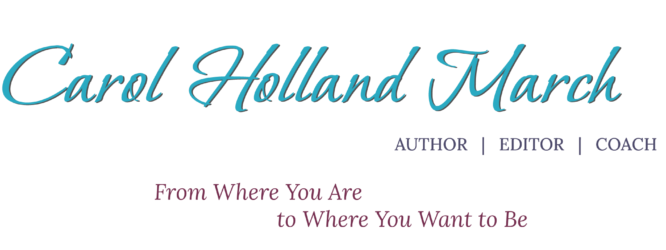 Vein of Gold, metaphorically the hidden treasure of our lives, is the title of a Julia Cameron book on journaling our way to creativity and spirituality. Her books are for people seeking to uncover their art, who may be stuck, or lack confidence in their ability to bring forth their ideas.
Vein of Gold, metaphorically the hidden treasure of our lives, is the title of a Julia Cameron book on journaling our way to creativity and spirituality. Her books are for people seeking to uncover their art, who may be stuck, or lack confidence in their ability to bring forth their ideas.
Since I perceive little difference between creative and spiritual endeavors, her work appeals to me. Also, the book is subtitled “A Journey to the Creative Heart,” which has been my journey.
When her first book, The Artist’s Way, came out, I assembled a group of women to do the work, a recovery process for blocked creatives. Every person in the group (I was the only would-be writer) made significant changes in her life. The process worked.
When the chance arose to work on The Vein of Gold: A Journey to Your Creative Heart, I spontaneously said, sure, why not. Let’s get a group together. Afterward, I wondered at my motivation. After slaying the dragons that had stopped me from writing fiction, I wrote and published short stories, essays, and three novels. So I asked myself, what do I expect to get out of Vein of Gold other than interesting interaction with like-minded people (not a small thing!)
Part of my practice is to follow my impulses, so I started working with the book. Whipped through the first few chapters. Yes, regular writing. Yes, walking is meditation. Yes, play invites the creative spirit. Then I got to the part about writing about my earlier life. There, lightning struck.
For several years, I’ve been toying with how to write a book about healing. Much of my life has been devoted to healing–physical, emotional, and psychological. After a recent difficult period, I broke through another veil. I understood what I wanted to say and how to do in, in broad strokes.
Broad strokes are the easy one. The work is in the details, and I found myself sitting in fear and trepidation about reviewing earlier parts of my life. Considering past experiences is not always pleasant. Remembering can be painful. Putting them into perspective is daunting.
Illumination comes from unlikely sources. This morning on the radio I caught a discussion about how memory, rather than being fixed and immutable, is a creative process. According to neuroscientists, when we remember, we re-create the experience. The more often we remember, for example, our disappointing sixth birthday party, the farther the memory gets from the original experience, and the more different it is. Emotion, judgment, and later experiences all influence it. The influence can be positive or negative.
This explains why one of my therapists helped me re-envision difficult early experiences mentally, through imaginative journeying. It explains why energy healers can go back in time and heal physical and psychological patterns active in a family for generations.
MEMORIES CAN BE CHANGED!
Of course! I knew that! But it’s fascinating when science discovers the mechanism by which mystics, healers, shamans, and psychics (and some psychologists) assist us in changing our lives.
Now I know why I’m working on Vein of Gold. As I review the phases of my life, I can change the experiences I choose so my present can be more creative and fulfilling.
Today, the book seems a lot less daunting.
If anyone is interested in joining the Vein of Gold group that is still forming, please contact me.
If you’d like to listen to the radio lab broadcast, here’s the link
https://www.wnycstudios.org/story/91569-memory-and-forgetting.




 How we feel about ourselves influences our immune system. Candace Pert (Molecules of Emotion) and many researchers since have uncovered physiological mechanisms in our bodies that influence how we feel and how effectively we can fight off and recover from illness.
How we feel about ourselves influences our immune system. Candace Pert (Molecules of Emotion) and many researchers since have uncovered physiological mechanisms in our bodies that influence how we feel and how effectively we can fight off and recover from illness.





 What happens when we don’t express our creative energy? When something inside blocks us from writing, painting, designing, making music, dancing for joy?
What happens when we don’t express our creative energy? When something inside blocks us from writing, painting, designing, making music, dancing for joy?
 An exercise I use with coaching clients moving through transition is to write their own epitaph. Some are put off by this exercise, but others embrace it. Some find it validates their choices, while others realize their current life does not reflect their true aspirations.
An exercise I use with coaching clients moving through transition is to write their own epitaph. Some are put off by this exercise, but others embrace it. Some find it validates their choices, while others realize their current life does not reflect their true aspirations.
 Language shapes our concepts about who we are and what we can do. Even idle words tossed off without thinking can be taken to heart and turned into beliefs. Hiding beneath the notice of the analytical mind,these beliefs govern behavior even when the person has opposing conscious beliefs.
Language shapes our concepts about who we are and what we can do. Even idle words tossed off without thinking can be taken to heart and turned into beliefs. Hiding beneath the notice of the analytical mind,these beliefs govern behavior even when the person has opposing conscious beliefs. Writing for Release
Writing for Release The Book of the Center
The Book of the Center